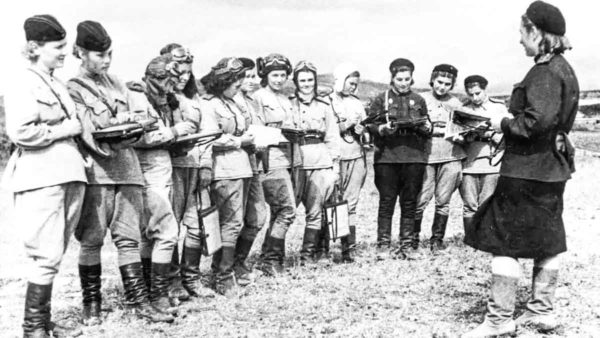I have not written much about the Soviet Union’s involvement in World War II (click here to read the blog, Tommy, Fritz, and Ivan), but I have written quite a few blogs on women’s roles during the war, especially in the French Resistance and as foreign agents [read the blogs, The Naked Heroine (click here), Women Agents of the SOE (click here), The White Mouse (click here), and The Sussex Plan and a Very Brave Woman (click here)]. Today’s blog combines each of these topics.
During World War II, America and Great Britain did not allow women to fly combat missions. However, Gen. Hap Arnold (1886−1950), head of the U.S. Army Air Forces, authorized an elite women’s air squadron to be formed (click here to read the blog, Killed in the Service of Her Country). Female pilots such as Betty Gillies and Cornelia Fort, delivered new planes from the manufacturing facilities to their assigned airfields located around the country. Arnold believed this would free up more male fighter pilots for combat duty.

Stalin on the other hand, created three all-female combat air regiments for the purpose of harassing and bombing German military targets. The women of one regiment devised a bombing technique that earned them the nickname, Die Nachthexen, or “The Night Witches.” They were so feared by the Germans that any soldier or pilot who downed a Night Witch aircraft automatically earned the Iron Cross medal. While American bomber crews were expected to fly twenty-five missions before going home, most of the Soviet women bomber crews flew more than eight hundred missions while one of them flew more than a thousand.


